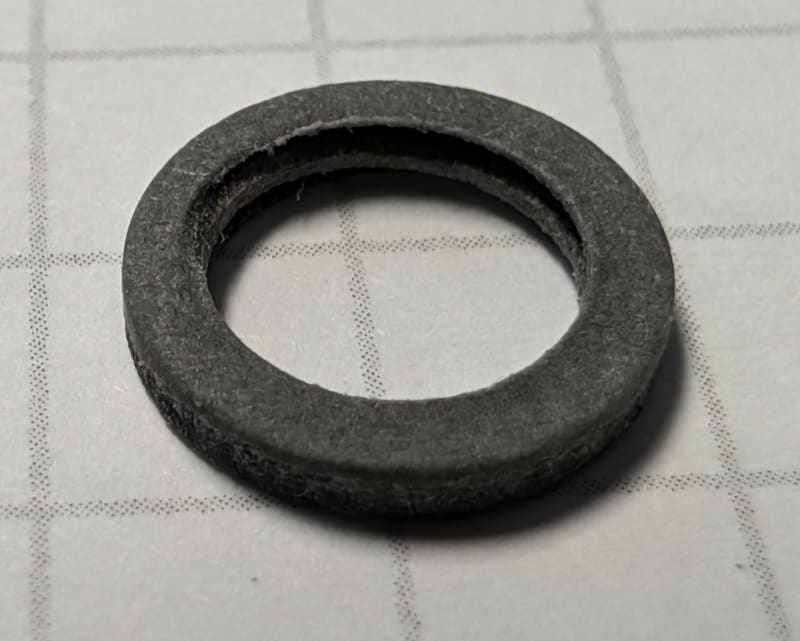I am trying to source the washer seal in the image below. It is .41" OD x .29 ID X .067" thick. The unique thing about this washer it appears to have a thread formed into the ID. I have reached out to every vulcanized fiber / hard fiber material supplier I can find and no one can make this. Does anyone here know where I could source something like this?


